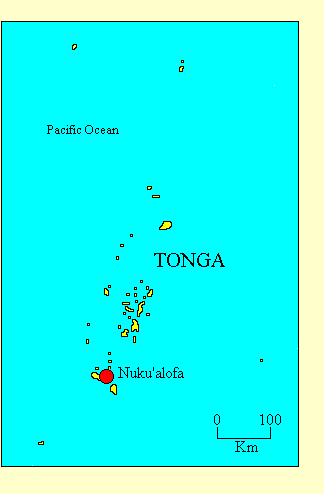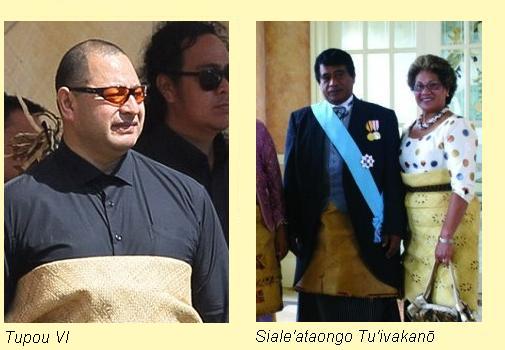
KINGDOM OF TONGA• Official name: Pule'anga Fakatu'i 'o Tonga (Kingdom of Tonga)
Under King Taufa'ahau Tupou IV, who came to the throne in 1965, there was little political reform. The king and nobility continued to rule the country, although there was freedom of political association and a free press. Tupou IV died in September 2006 and was succeeded by his son, George Tupou V, who faced increasing pressure for reform. When the king rejected a report which recommended a transition to democratic government, riots broke out which destroyed most of central Nuku'alofa. The king declared a state of emergency, but also appointed a Constitution and Electoral Commission to report on constitutional reforms. The king also ceded much of his power to the Prime Minister. Siale'ataonga Tu'ivakano, a member of the nobility, has been Prime Minister since December 2010. The 2010 elections were the first fully democratic election in Tongan history. The Democratic Party of the Friendly Islands (DPFI), which favours a full constitutional democracy, won 12 of the 17 popularly elected seats, with the others going to independents. The Prime Minister is now accountable to the majority of the Assembly rather than to the King. Nevertheless King Tupou V retained an influential role in government until his death in March 2012. He was succeeded by his brother, Tupou VI. Freedom House's 2011 report on Tonga says: "Tonga is an electoral democracy... Widespread official corruption is a major source of public discontent. The royals, nobles, and their top associates have allegedly used state assets for personal benefit, and transparency and accountability are lacking... Despite constitutional guarantees of freedom of the press, the government has a history of suppressing media criticism. A Department of Information oversees all media reporting. Nevertheless, letters to the editor and commentaries critical of the government appear regularly in all newspapers, including those owned by the state or in which the state owns shares... Criticism of the monarchy is not tolerated... Freedoms of assembly and association are upheld... The judiciary is generally independent, and traditional village elders frequently adjudicate local disputes. Criminal suspects may exercise the right to an attorney and a court hearing. However, a shortage of judges has created serious backlogs." Updated March 2012 |
